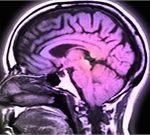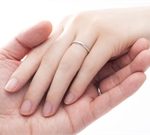
As much as people often love to talk about their feelings, it might be more productive to skip the conversations and write about your worries instead, according to research done at Michigan State University (MSU). The research, published in the journal Psychophysiology, provides the first neural evidence of the benefits of expressive writing, according to lead author Hans Schroder. He’s a former MSU doctoral student who is now doing research at the Laboratory for Translational and Affective Neuroscience at McLean Hospital, in Belmont, Mass. It turns out that writing about your stresses, anxiety and worries can free up your brain to accomplish other tasks more effectively. Researchers have long known that constant worry uses up mental resources. It’s as though anxiety is always running in the background. So when you add on, say, a stressful work project, you automatically force your brain to multitask, which is never a good thing. In the MSU study, Schroder’s team found that the participants who wrote expressively about their feelings were able to offload their worries and allow their brains to run efficiently, like a new hybrid car. On the other hand, study participants who didn’t write about their feelings — and stayed stressed — ended up guzzling more brain gas to accomplish the same tasks, like your parents’ old, inefficient clunker. The key takeaway is that offloading worry… read on >
















